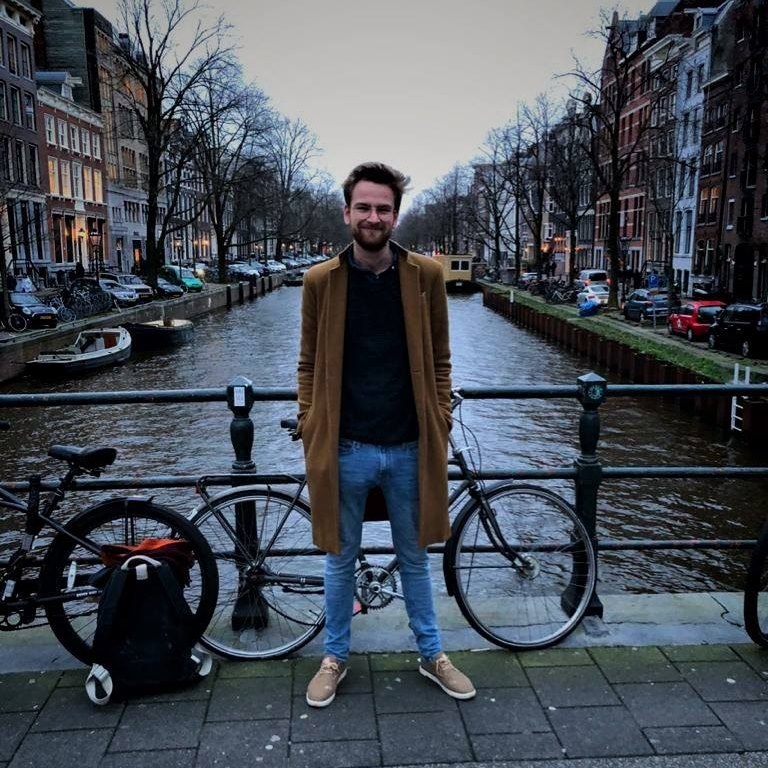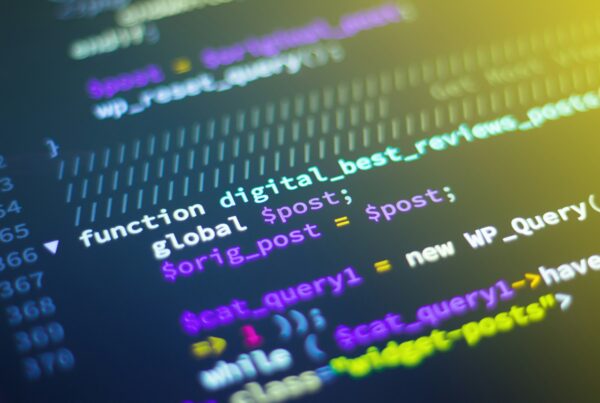

Maxi Maier
What is it like to be a Psychology student? Three questions for Maxi Maier (master : Research Methods).
What is the most useful thing that you’ve learned from Psychology?
‘Perhaps it is the realization of how hard it can be to understand the psychological processes of others. Before studying psychology, I was more optimistic and confident about what other people are thinking. Also, I have learned how little people know about themselves. I remember a social psychology lecture in my first semester; the professor presented a striking finding of how people’s self-ratings of their skills were virtually uncorrelated to the objective test scores related to their skills. So, it is this ‘knowing what you don’t know about psychology’ that was most surprising and also useful for me. ’
What do you like and dislike about Psychology at UvA?
‘So far, I actually like most things about the UvA. For example, compared to my previous studies in Germany, the UvA focuses much more on learning and skills compared to learning the material by heart. Also, and this may be related to the Dutch culture in general, I like that the power distance is quite low at the UvA, as you can basically be on an equal level with your supervisors or lecturers and discuss and criticize any matter very openly. Additionally, compared to some other universities, I like that in addition to grades, a whole lot of other things are considered at the UvA evaluating me as a student, such as participating in research internships, thesis topics, or motivational statements. I think that this predicts the future performance of any student better than solely their grades. Of course, it also helps me to be a bit more relaxed, as I don’t stress that much about grades at the UvA – other activities count toward my assessment as well. What I dislike about the UvA is probably the reliability of grading. I feel that the grading is valid, but sometimes there is a lot of noise in individual exams and the grade can depend on which tutor you’ve been assigned to, and a little bit on luck. However, overall, I think that all the grades and the classes probably converge to a pretty good estimate of a student’s performance. ’
Do you think psychology will eventually be able to explain everything?
‘It’s hard to answer, but I have to say no, because of the word ‘everything’. I would say ‘no’ even if the question was about physics. I think that psychology will eventually be able to explain more, and more generally will see a very good development as a discipline. This is because I believe that the progress of a scientific discipline is best predicted by the progress of research methods and in that area, we have seen a lot of advances in recent years in psychology. For example, some recent methodological reforms like the Open Science movement brought the preregistration practices and also registered reports, which improves the quality of research methods. Additionally, more data is readily available for psychological research performed by more psychology researchers than ever before. For example, psychology uses online studies more, where it can get participants for less money and build much more representative samples than we could a few years ago. In this way, data collection is becoming progressively easier for psychology, compared to for example physics, where data collection is always harder because the cost and availability of equipment rise with increasing levels of expertise. I am always critical about claims that assert that some disciplines, in this case, psychology, will be able to explain everything, but I believe that improved research methods and more easily available data analyzed by many researchers will speed up and improve psychology research a lot.’

Maxi Maier
What is it like to be a Psychology student? Three questions for Maxi Maier (master : Research Methods).
What is the most useful thing that you’ve learned from Psychology?
‘Perhaps it is the realization of how hard it can be to understand the psychological processes of others. Before studying psychology, I was more optimistic and confident about what other people are thinking. Also, I have learned how little people know about themselves. I remember a social psychology lecture in my first semester; the professor presented a striking finding of how people’s self-ratings of their skills were virtually uncorrelated to the objective test scores related to their skills. So, it is this ‘knowing what you don’t know about psychology’ that was most surprising and also useful for me. ’
What do you like and dislike about Psychology at UvA?
‘So far, I actually like most things about the UvA. For example, compared to my previous studies in Germany, the UvA focuses much more on learning and skills compared to learning the material by heart. Also, and this may be related to the Dutch culture in general, I like that the power distance is quite low at the UvA, as you can basically be on an equal level with your supervisors or lecturers and discuss and criticize any matter very openly. Additionally, compared to some other universities, I like that in addition to grades, a whole lot of other things are considered at the UvA evaluating me as a student, such as participating in research internships, thesis topics, or motivational statements. I think that this predicts the future performance of any student better than solely their grades. Of course, it also helps me to be a bit more relaxed, as I don’t stress that much about grades at the UvA – other activities count toward my assessment as well. What I dislike about the UvA is probably the reliability of grading. I feel that the grading is valid, but sometimes there is a lot of noise in individual exams and the grade can depend on which tutor you’ve been assigned to, and a little bit on luck. However, overall, I think that all the grades and the classes probably converge to a pretty good estimate of a student’s performance. ’
Do you think psychology will eventually be able to explain everything?
‘It’s hard to answer, but I have to say no, because of the word ‘everything’. I would say ‘no’ even if the question was about physics. I think that psychology will eventually be able to explain more, and more generally will see a very good development as a discipline. This is because I believe that the progress of a scientific discipline is best predicted by the progress of research methods and in that area, we have seen a lot of advances in recent years in psychology. For example, some recent methodological reforms like the Open Science movement brought the preregistration practices and also registered reports, which improves the quality of research methods. Additionally, more data is readily available for psychological research performed by more psychology researchers than ever before. For example, psychology uses online studies more, where it can get participants for less money and build much more representative samples than we could a few years ago. In this way, data collection is becoming progressively easier for psychology, compared to for example physics, where data collection is always harder because the cost and availability of equipment rise with increasing levels of expertise. I am always critical about claims that assert that some disciplines, in this case, psychology, will be able to explain everything, but I believe that improved research methods and more easily available data analyzed by many researchers will speed up and improve psychology research a lot.’



